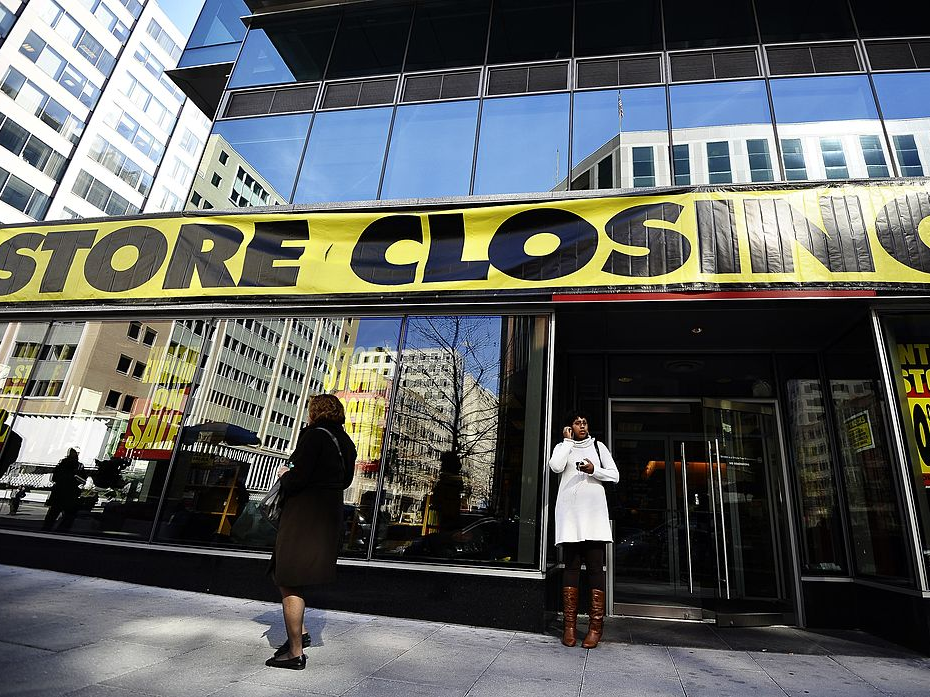- Making money selling books isn’t always an open book.
- Plenty of successful book-selling chains came on the scene between the 1960s and 1980s.
- However, a number of them have closed their doors for good.
- Visit Business Insider’s homepage for more stories.
When it comes to financial pressures, some retailers are able to turn the page.
But businesses that sell books are often operating on paper-thin margins. There’s little room for error, and the competition is especially fierce since the rise of e-commerce. Amazon cut its teeth selling books online after all.
Read more: Inside the luxurious department store founded by one of the most important figures in Mormon history
So it’s not surprising that a number of previously successful book retailers have shuttered over the past decade or so. These booksellers underwent downturns that don’t all follow the same playbook, but, in the end, they all closed.
Here's a look at a few bookstore chains that aren't around anymore:
Bookstop

Founded in 1982 in Texas, Bookstop grew rapidly across the country by offering customers bargains on books.
Just seven years in, bookselling giant Barnes & Nobles swooped in to acquire the smaller retailer. Barnes & Nobles prevailed in a fight with competitor Crown Books, and it ultimately purchased Bookstop in 1989, according to the Washington Post.
Borders Books

Based in Ann Arbor, Michigan, Borders Books was founded in 1971 by University of Michigan graduates Tom and Louis Borders, according to the Los Angeles Times.
In 1992, Kmart stepped in and bought Borders and merged the bookseller with its previous acquisition, Waldenbooks, the New York Times reported. The acquisition quickly fell apart that same year, and Kmart dispensed with its book division. Independent once more, Borders continued to expand under the new name Borders Group, according to Reuters.
Financial struggles and the rise of e-commerce hurt Borders, and by 2007, the business had stopped earning a profit. In 2011, Borders applied for bankruptcy and ultimately liquidated its surviving locations.
Crown Books

Founded in Maryland in 1977, Crown Books cemented a reputation for discounts. Founder Robert Haft borrowed money from his father, Herbert, in order to launch the fast-growing chain, which began popping up all around the country in subsequent years.
However, the success story masked a contentious situation behind the scenes.
The Baltimore Sun reported that Herbert attempted to wrest control of the company from his son, who subsequently filed suit. In the end, Haft Sr. gave up his voting rights in Crown Books' parent company, the Dart Group, for $41 million.
But this wasn't a happy ending for the bookseller; with the death of its parent company, Crown Books went through a series of bankruptcies, according to the Washington Business Journal. By 2001, the company was completely liquidated. The name still lives on at a few locations, although it is not associated with the original chain, according to the San Diego Reader.
Waldenbooks

The first Waldenbooks store launched in 1962, although its founders had been in the book-renting business since the 1930s. Kmart snapped up Waldenbooks in 1984. Within Kmart, Waldenbooks and Borders would eventually merge and then later spin off as an independent bookseller in 1995.
Borders marked its newfound independence by beginning to phase out the Waldenbooks name, and both booksellers shuttered for good after the Borders Group filed for liquidation in 2011. The chain did, however, make a cameo in the third season of Netflix hit "Stranger Things."











